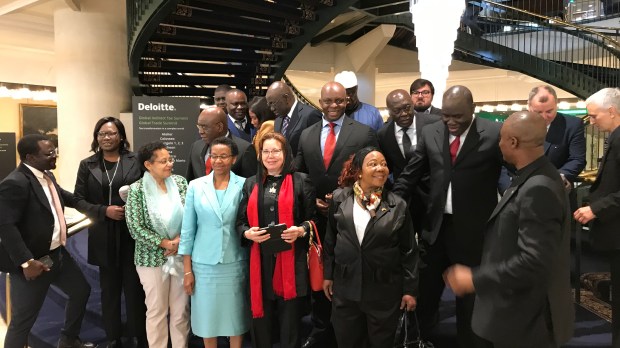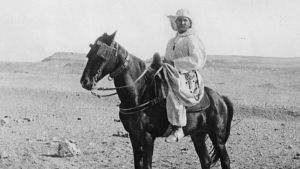On May 29, 2023, Pope Francis will receive a delegation of 54 youth from various African countries for an exchange on the future of the continent. Ahead of this audience, several African ambassadors met in Rome on May 10 to reflect on how the Holy See can further support and promote development initiatives in Africa, and in particular in the troubled Sahel region.
The delegation of African children that the Pope will receive will come from most of the 55 countries that make up the continent. This meeting, which is organized by the ambassadors to the Holy See representing various African nations, is intended to allow these young people to express to the Pope what the Africa of tomorrow means to them.
“They will not be briefed,” a diplomat told I.MEDIA, “and if they say there is no democracy in Africa, it will be like that.” Due to the difficulty of obtaining visas to enter the European Union, many of them will be children currently residing in Europe.
Ambassadors join forces
To make their voices heard in Rome, African countries are not hesitating to join forces. In a hotel in the Italian capital on May 10, some 15 ambassadors accredited to the Holy See from various African countries came together. They were commemorating the 43rd anniversary of the appeal launched by Pope John Paul II on May 10, 1980, for the drought-stricken populations of the Sahel.
Four years after this appeal, in 1984, the Polish Pontiff created the John Paul II Foundation for the Sahel to provide concrete support on the ground. “It plays a very important role for us,” said a diplomat from one of the countries involved, which include Burkina Faso, Niger, Mali, Guinea-Bissau, Cape Verde, Mauritania, Senegal, Gambia and Chad.
All the representatives of the countries present praised the work done by the organization. With the help of the clergy and local Catholic associations, it has financed more than 5,000 development projects in the region, including 379 in the last five years. Also present at the meeting, which was initiated by the embassies of Senegal and Burkina Faso, were representatives of the Vatican’s Secretariat of State, of the United Nations, and of other Catholic associations.
The John Paul II Foundation
The John Paul II Foundation for the Sahel is mostly financially supported by the Italian and German Bishops’ Conferences, but also by the French Bishops’ Conference and private donors. In total these entities have contributed nearly four billion euros to the organization. “This is both a lot and a little,” said the Senegalese ambassador to the Holy See, recalling that the organization of the recent World Cup in Qatar cost more than 220 billion dollars.
Despite these efforts, “the situation has not changed much,” commented the Ambassador of Burkina Faso to the Holy See, Régis-Kévin Bakyono. Acknowledging that “the fight against poverty and the building of peace still need to be pursued,” he invited his fellow Africans to “do it together, with the Holy See.”
One of the other key partners present at the meeting was the UN Convention to Combat Desertification (UNCCD), which is working on a big reforestation program in the region called the Great Green Wall, which aims to push back the enlarging of the desert.
Pan-African solidarity
Several representatives of other African countries not belonging to the Sahel zone, or bordering it, have given their full support to the initiative. Many of them, such as Cameroon and the Ivory Coast, said they were interested in joining the John Paul II Foundation, even though no such process is currently provided for in its statutes.
The first counselor of the Ivory Coast embassy, David Bile, emphasized how the crisis in the Sahel, particularly jihadism, is “existential” for the entire continent. The Moroccan ambassador to the Holy See, Rajae Naji El Mekkaoui, emphasized the impact of this crisis also on migration.
Don Mullan, an Irish consultant to the UNCCD, encouraged the John Paul II Foundation for the Sahel to grow, describing it as “the best kept secret of the Catholic Church.” An official of the Secretariat of State emphasized the relevance of the foundation, whose forward-looking ecological and social vision is perfectly aligned with that advocated by Pope Francis in his encyclical Laudato si’.


